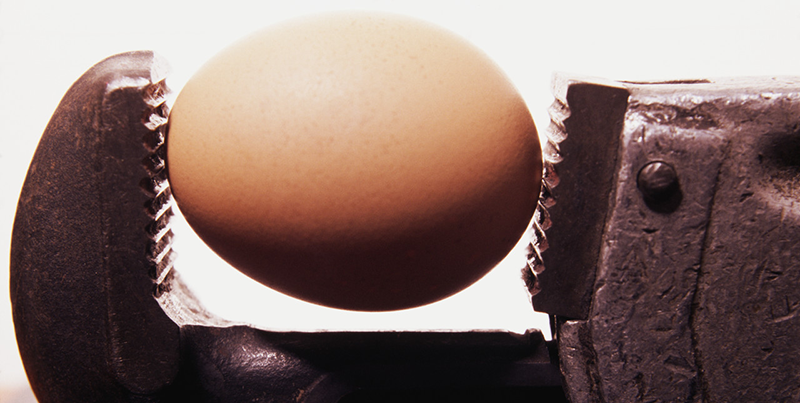What Does Protein Do For Your Body?

Asking what protein does for your body is like asking for a complete account of how your body functions — proteins are involved at each step. Learn more.
Tell your family that you’re planning to become a vegetarian – or even a vegan — and you’ll hear, “Make sure you get protein!” We all know we need to eat protein, but why?
What does protein do for your body?
To answer that, we need to ask another question: “What is protein?”
Proteins are made up of long chains of amino acids. Twenty amino acids combine in different ways to make the thousands of kinds of proteins in your body. That’s why amino acids are often called your body’s building blocks.
Your body can make most of the 20 amino acids. But there are nine amino acids, called essential amino acids, that must come from food. Meat and eggs are complete proteins because they contain all of the essential amino acids. Beans and nuts contain some of the nine.
YOU MIGHT ALSO LIKE: Protein-Rich-Food
You need to eat enough of each amino acid each day, but it doesn’t need to come from one source. If you combine legumes like beans, lentils, and peanuts with grains like wheat, rice, and corn, you’ll have all nine essential amino acids in your meal. Humus and pita are a complete protein, and so are rice and beans. Peanut butter on wheat bread is good, too. Quinoa, buckwheat, and soy are each complete proteins made from plants. But you actually don’t need complete proteins in each meal, just enough of the nine essentials in a day.
If you don’t get enough, you’ll feel the difference. Asking what protein does for your body is like asking for a complete account of how your body functions — proteins are involved at each step.
Your body will use amino acids from food to build and maintain body tissues made of protein. If you are ill, pregnant, breastfeeding, an athlete, or recovering from an injury or surgery, you’ll need more protein to fill important functions.
Digestion, producing energy, blood clotting, and muscle contraction all require enzymes, which are a kind of protein. These enzymes go to work both within and outside your cells, playing key roles in biochemical reactions.
Many hormones, chemical messengers within the body, are also proteins, made from chains of amino acids. An important example is insulin, which regulates the sugar in a cell.
Fibrous proteins give your tissues their shape. Keratin, a protein in your skin, hair, and nails, provides structure. Collagen gives structure to you bones, tendons, ligaments, and skin.
What else does protein do for your body?
Different kinds of protein help your body maintain the concentration of acids in your blood and other fluids. For example, hemoglobin, a protein in red blood cells, binds to acid so your blood doesn’t get too acidic. Other proteins in your blood attract and retain water. If you don’t eat enough protein, those water-balancers decrease and blood builds up outside your cells, creating swelling.
Proteins are also part of your immune system. Antibodies, which tag harmful bacteria and viruses, are proteins in your blood.
Other proteins carry oxygen, glucose, or fat through your body to meet various needs. Proteins also store ingredients that your body needs.
Most of the time, your body burns carbohydrates and fats to fuel your activities. But if you are under-eating or exercise strenuously, your body may draw upon protein for fuel as well as building blocks for human proteins.
Some signs that you’re missing key amino acids include feeling tired, despite enough sleep; losing muscle; feeling hungry even after meals; losing hair; bloating or swelling; or falling sick more often.
Updated:
June 03, 2019
Reviewed By:
Janet O’Dell, RN